
Election Post-Mortem – where to now for Parliament & People?
In the aftermath of the European Parliamentary Elections 2024, Oliver Moore assesses what happened and what might happen next, with a farming, food and rural lens. […]

Dr. Oliver Moore is the communications director and editor-in-chief with ARC2020. He has a PhD in the sociology of farming and food, where he specialised in organics and direct sales. He is published in the International Journal of Consumer Studies, International Journal of Agricultural Resources, Governance and Ecology and the Journal of Agriculture, Food Systems, and Community Development. A weekly columnist and contributor with Irish Examiner, he is a regular on Countrywide (Irish farm radio show on the national broadcaster RTE 1) and engages in other communications work around agri-food and rural issues, such as with the soil, permaculture, climate change adaptation and citizen science initiative Grow Observatory . He lectures part time in the Centre for Co-operative Studies UCC.
A propos d'Oliver Moore
Oliver voyage beaucoup moins qu’auparavant, pour ce qui concerne son activité professionnelle. Il peut néanmoins admirer par la fenêtre de son bureau les mésanges charbonnières et les corbeaux perchés au sommet du saule dans le jardin de sa maison au cœur de l’écovillage de Cloughjordan, en Irlande. L’écovillage est un site de 67 acres dans le nord du Tipperary. Il comprend d’espaces boisés, des paysages comestibles, des lieux de vie, d’habitation et de travail, ainsi qu’une ferme appartenant à la communauté. Les jours où il travaille dans le bureau du centre d’entreprise communautaire, il profite d’une vue sur les chevaux, les panneaux solaires, les toilettes sèches et les jardins familiaux.
Ce bureau au sein de l’écovillage constitue en effet un tiers-lieu de travail accueillant également des collaborateurs des associations Cultivate et Ecolise, ainsi qu’un laboratoire de fabrication (« fab lab »).
Oliver est membre du conseil d’administration de la ferme communautaire (pour la seconde fois !) et donne également des cours sur le Master en coopératives, agroalimentaire et développement durable à l’University College Cork. Il a une formation en sociologie rurale : son doctorat et les articles qu’il publie dans des journaux scientifiques portent sur ce domaine au sens large.
Il consacre la majorité de son temps de travail à l’ARC 2020. Il collabore avec ARC depuis 2013, date à laquelle l’Irlande a assuré la présidence de l’UE pendant six mois. C’est là qu’il a pu constater l’importance de la politique agroalimentaire et rurale grâce à sa chronique hebdomadaire sur le site d’ARC. Après six mois, il est nommé rédacteur en chef et responsable de la communication, poste qu’il occupe toujours aujourd’hui. Oliver supervise le contenu du site web et des médias sociaux, aide à définir l’orientation de l’organisation et parfois même rédige un article pour le site web.
À l’époque où on voyageait davantage, il a eu la chance de passer du temps sous les tropiques, où il a aidé des ONG irlandaises de commerce équitable – au Ghana, au Kenya, au Mali, en Inde et au Salvador – à raconter leur histoire.
Il se peut que ces jours-là reviennent. Pour son compte Oliver continuera de préférer naviguer en Europe par bateau, puis en train. Après tout, la France n’est qu’à une nuit de navigation. En attendant, il y a toujours de nombreuses possibilités de bénévolat dans la communauté dans les campagnes du centre de l’Irlande.

In the aftermath of the European Parliamentary Elections 2024, Oliver Moore assesses what happened and what might happen next, with a farming, food and rural lens. […]
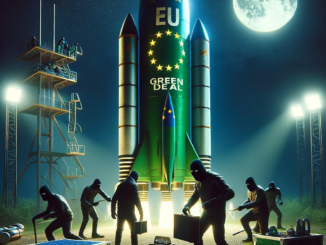
Oliver Moore rounds up the state of play as the mandate of the EU institutions completes. Its not been a good finish, but there are amazing things happening on the ground. It is from here – from the ground up – that we must build better policy. […]

Under pressure from farmer protests, upcoming elections and its own cowardice in the face of climate and biodiversity collapse, the political establishment in Brussels and beyond is fast-tracking the evisceration of CAP’s environmental elements. This rush job began on 15th March with a proposal from the Commission, and will likely end Thursday 25th when the last full plenary of the Parliament rubber stamps the proposed regulation. The latest piece of sequencing was confidential legal advice given to the European Parliament on the process. In part one Natasha Foote outlined the proposal and the legal advice. Here Oliver Moore applies a critical analysis to shortcomings therein. […]

It’s back to the future as the EU’s green ambitions face the chopping block, with priorities shifting to security and competition. That’s according to the European Council’s vision for the next 5 years, as revealed in a leaked internal draft of EU leaders’ ‘strategic agenda’. Oliver Moore and Natasha Foote have the details, including the leaked document itself. […]
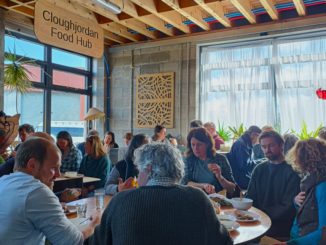
The Feeding Ourselves gathering 2024 saw a diverse range of people and topics over four days in the Irish midlands. From policy analysis to deep listening, tactile workshops to building bridges the four days were a full spectrum of experiences. Here we summarise Friday, a local food economies experience for activists, enablers and organisers in this area. So what’s needed, and what can be done to help embed and amplify agroecological local food provisioning by communities, for communities? Oliver Moore reports. […]
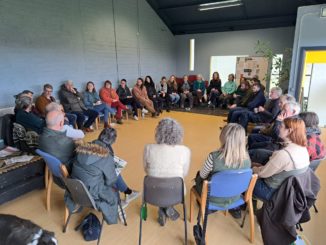
Sometimes things are simple and sometimes they are complicated. In the Irish midlands, from 21-24th March, people representing dozens of organisations involved in agri-food, came together to work together on how we feed ourselves. here’s sever things I learned at this year’s event. […]

“Given the technical, economic and social uncertainties identified in this report and the controversies raised by the development of NTG-derived plants, the Working Group recommends that a system be set up to monitor NTG plants and products derived from them…an assessment of the risks…should be carried out on a case-by-case basis”. […]

“The Commission is about to dismantle conditionality requirements that are based on unequivocal scientific evidence, and which it has explicitly acknowledged as being essential tools to address current climate, environmental, and biodiversity issues.” That’s according to a large number of organisations who have the EU Commission to urge it to reconsider the loosening of the CAP’s green architecture. […]
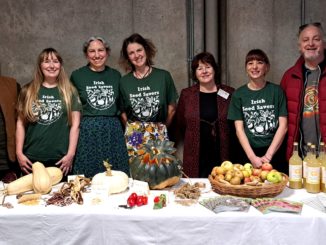
The 12th Forum of the European Coordination of Let’s Liberate Diversity, held in the Irish capital, drew over 100 participants from all over Europe and beyond, including Minister of State at the Irish Department of Agriculture, Pippa Hackett. The importance of agrobiodiversity, of food policy councils and the risks of the proposed European seed marketing proposal emerged as key themes from a vibrant event held in Dublin last week. […]

In a suprise move, EU Member States did not reach a qualified majority for the reapproval of glyphosate at a meeting of the Standing Committee on Plants, Animals, Food and Feed (PAFF) today. So what’s next? […]

The Nature Restoration Law (NRL) has survived the European Parliament’s Plenary vote today, Though the Parliament adopted a significantly weaker NRL, the Council’s position is more environmental ambitious – and the Council tends to have the upper hand in these negotiations. This augers well for the NRL coming into force. […]

School’s out for summer – and soon, the Brussels bubble will check out too. But not before a slew of new and updated regulations and legislations, impact assessments and more, all have their moment in the sun. Soil, seeds and NGTs, food waste, pesticides and of course the nature restoration law – it’s all coming thick and fast in these heady days. Oliver Moore and Ashley Parsons guide you through the brimming lunchboxes of the Brussels bureaucrats in these final days before summer break. […]
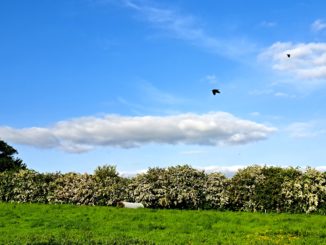
Good news! The Nature Restoration Law (NRL) won’t, can’t and couldn’t cause the abandonment of 10% of Europe’s perfectly good farmland. This is important to know in advance of the vote on the 15th in the European Parliament’s Environment Committee. If this committee doesn’t pass the compromise NRL text, its likely over. So if you are contacting MEPs on the ENVI Committee – or if indeed you are one of those 88 MEPs – rest assured. These is no land abandonment in the NRL. Explainer by Oliver Moore. […]
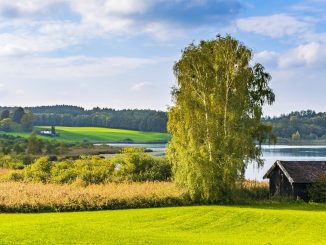
The Nature Restoration Law is in a perilous place at present. Having been rejected by two relevant Committees in the European Parliament outright, all eyes are on the Committee leading on the file – the Environment Committee, or ENVI. Oliver Moore with a brief explainer of the current state of affairs. […]
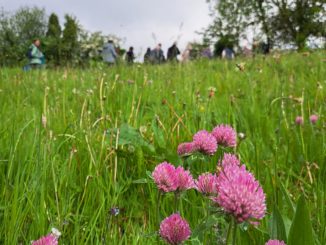
A range of amendments to the Nature Restoration Law (NRL) have been tabled for Tuesday’s Agriculture and Rural Development Committee in the European Parliament. Reduced targets, increased exemptions and a reduced role for NGOs are among the standout amendments. […]
Agricultural and Rural Convention